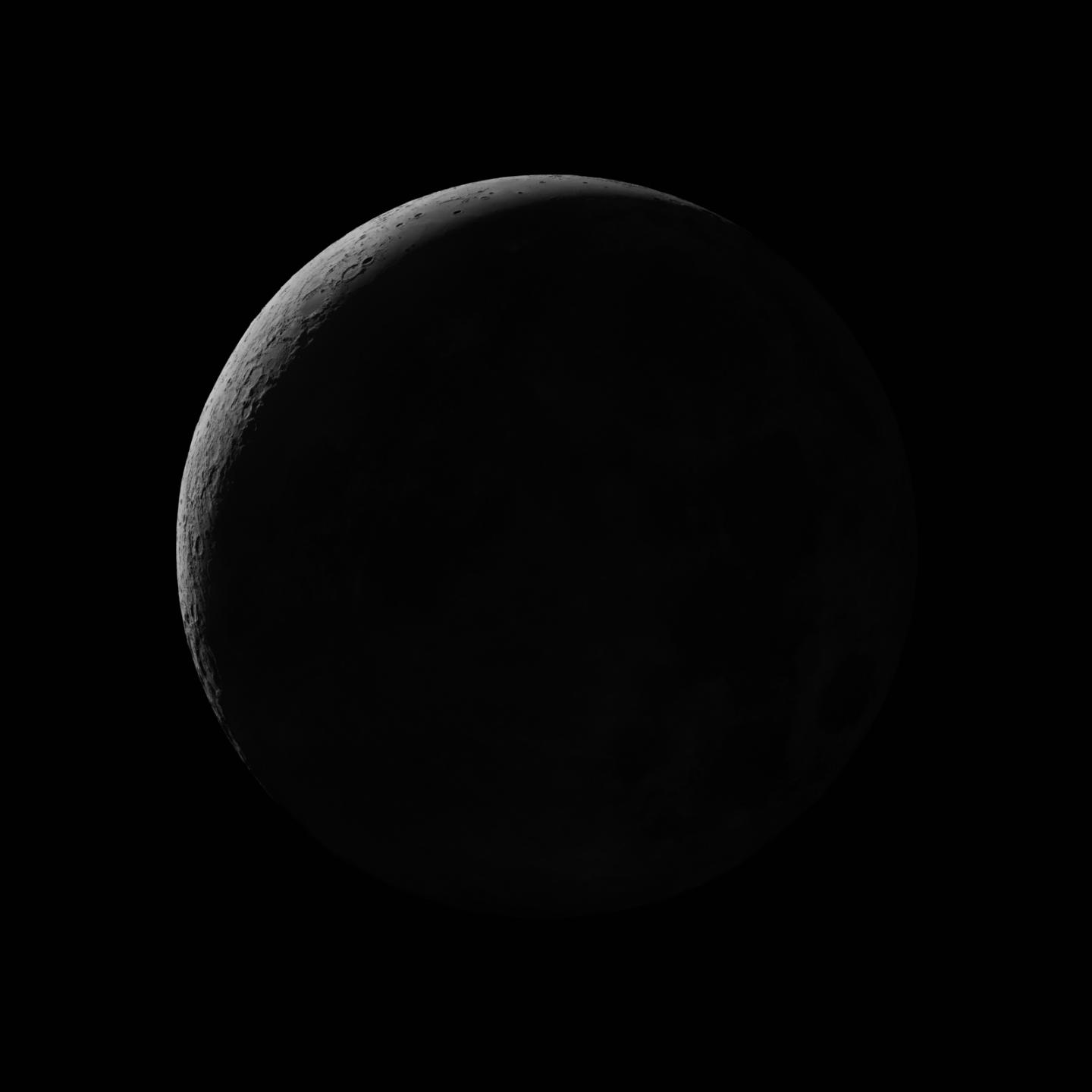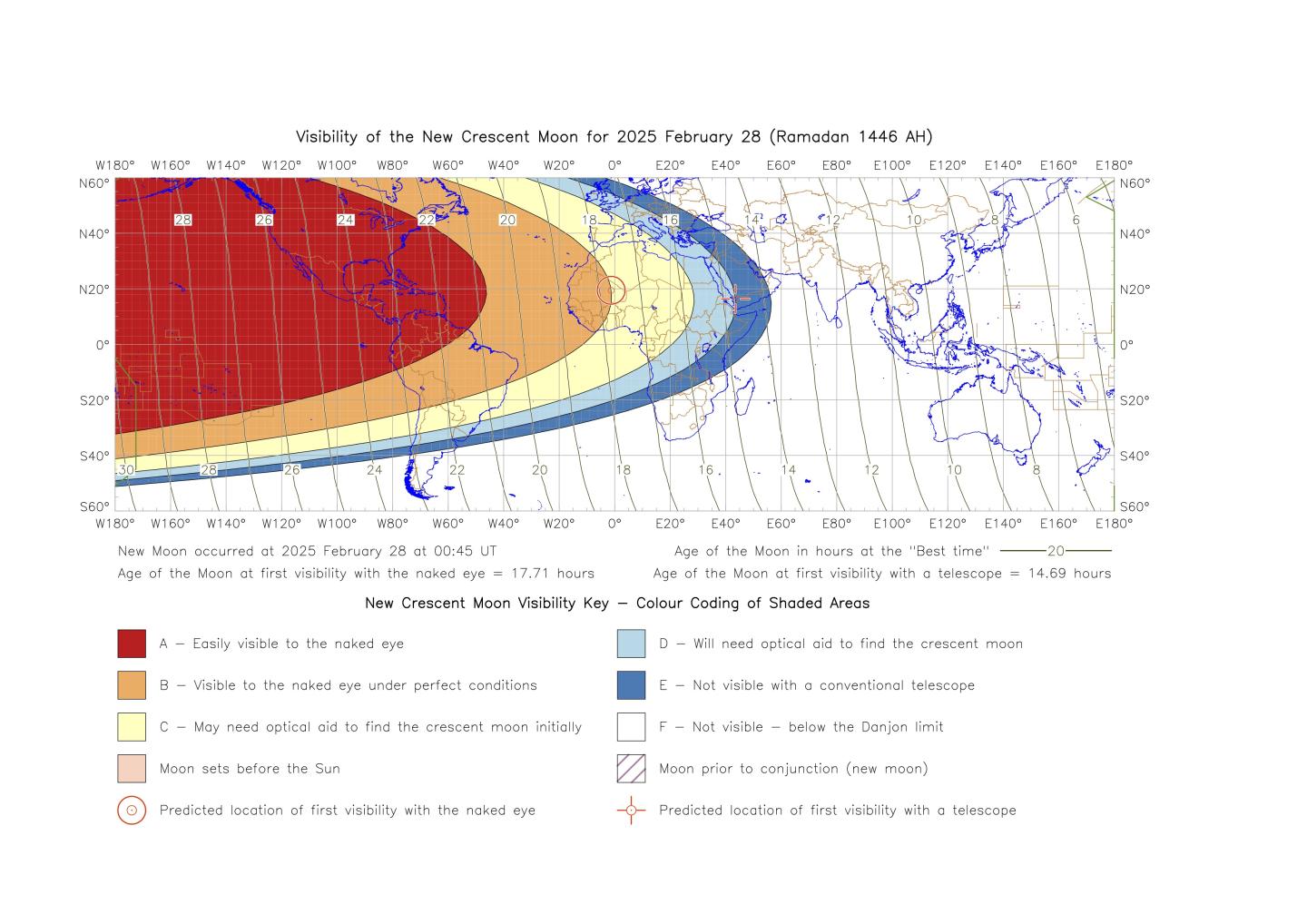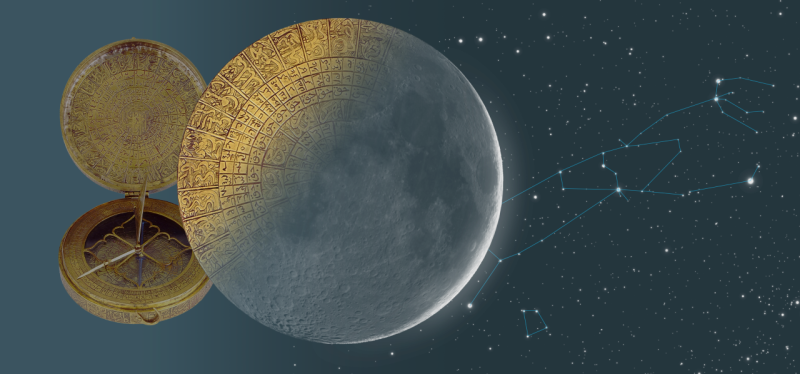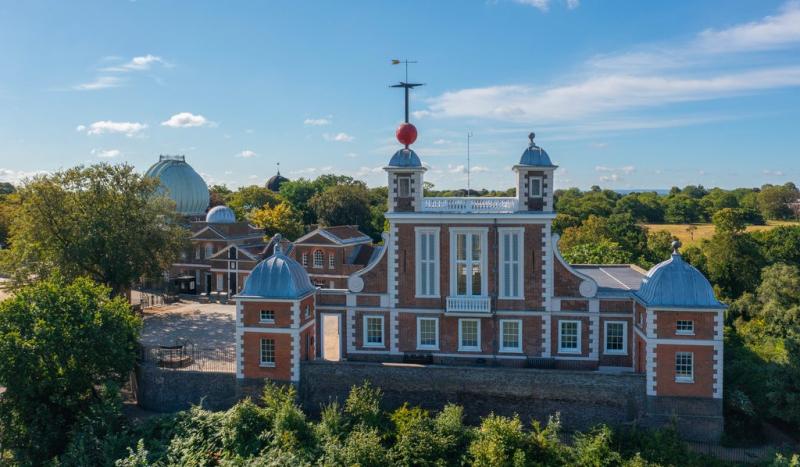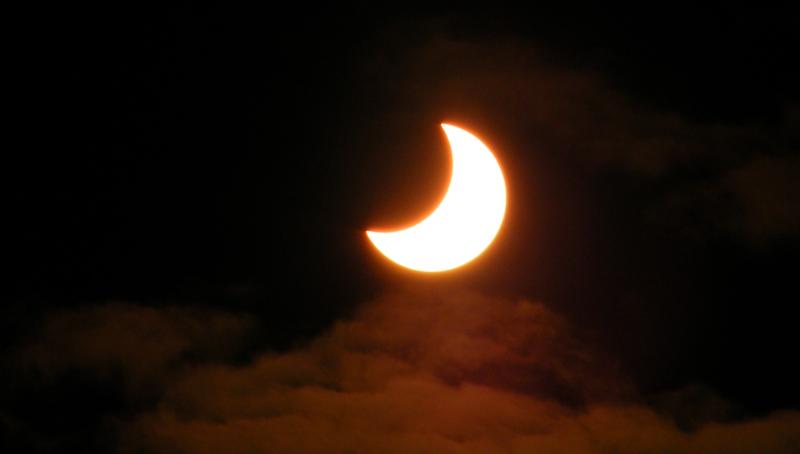
Essential Information
| Type | Events and festivals |
|---|---|
| Location |
Online
|
| Date and Times | Friday 28 February 2025 | 5.45-6.30pm |
| Prices | Free |
Join Royal Observatory Greenwich and the New Crescent Society this February for a special live astronomy show, as we scan the skies searching for a glimpse of the new crescent Moon.
The sighting of a new crescent moon – when the Moon appears as a slim sliver of light in the sky – marks the beginning of a new month in the Islamic calendar.
In 2025, the holy month of Ramadan is expected to begin on the evening of 28 February in the UK. The exact date however depends on when the Moon is first seen.
Director of the New Crescent Society Imad Ahmed and Royal Observatory astronomer Jake Foster will be presenting live from Greenwich, discussing the links between astronomy and Islam and giving tips for spotting the new crescent Moon yourself.
Meanwhile, members of the New Crescent Society will be calling in from around the UK, as we watch the skies and wait for a confirmed sighting.
Join us live on Facebook and YouTube, and set your reminders for a memorable evening of astronomy.
The Royal Observatory is part of Royal Museums Greenwich, a charity that relies on your support to maintain our telescopes and preserve our historic buildings. If you enjoy our live shows or want to support our astronomers’ important work, please donate today.
Why are we looking for the new crescent Moon?
The Islamic calendar is a 'lunar visibility' calendar. The beginning of each month is based on the sighting of the new crescent Moon.
A new crescent moon is the first time the Moon can be seen following a new moon (when the Moon is entirely invisible from the Earth). A new crescent moon appears as a slim curve in the sky, with just a fraction of its surface illuminated with light from the Sun.
Although it takes 29.5 days for the Moon to go through a full lunar cycle, it isn't possible for a month to have half a day. A month in the Islamic calendar therefore either has 29 or 30 days depending on when the new crescent Moon is first seen.
"On the 29th of each Islamic calendar month, Muslims go out after sunset looking for the Moon," explains Imad Ahmed.
"If you can see the crescent Moon on the 29th, that month has 29 days. If you cannot, it means that month has 30 days. That’s why, for example, in some years Ramadan has 29 days and in other years it has 30."
Why are the dates of Ramadan different around the world?
The timing of the new crescent Moon's appearance varies depending on where you are the world – just like sunset and sunrise times. This means that not everyone will be able to see the Moon at the same time or even on the same day. This variation across the world can lead to some countries marking religious holidays on different dates.
“One of the issues faced by Muslims in the UK is that we tend to differ amongst ourselves on which dates we celebrate Ramadan and Eid,” explains Imad.
"This is because some Muslim communities in the UK follow the Islamic calendar of other countries. When Muslims in the UK follow the calendars of different countries around the world, it’s natural we will have some differences.
"Different countries might see the Moon on different dates, and different countries might have alternative methods of determining the Islamic calendar, which might not correspond to the visibility of the Moon."
Will the new crescent Moon be visible on 28 February?
You'll have to look out yourself or join us live to find out! This Moon visibility map, published by HM Nautical Almanac Office, suggests that the new crescent moon may be visible using small telescopes on 28 February in the UK. Easy sightings of the new crescent moon will be possible on 1 March.
Your support makes this happen
Main image by Büşra Taşkın from Pexels
